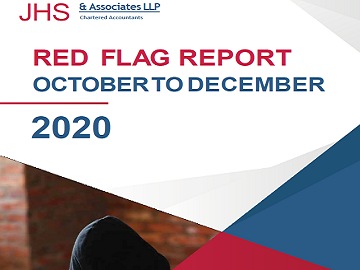Reference: Central Board of Indirect Taxes and Customs
Update:
Clarification relating to import of gifts:
The Directorate General of Foreign Trade (DGFT) clarified that the goods imported as gifts can be allowed import free (i.e. without prohibition) on payment of full applicable duties.
Since the goods imported as gifts would be personal imports, the full applicable duties will be as follows
(a) Basic Customs Duty at the applicable tariff rate as per the First Schedule of the Customs Tariff Act for the heading 9804 which is 35% at present.
(b) IGST at the rate specified for the heading 9804 (Si. No. 227 schedule IV) in Notification No. 1/2017 –Integrated Tax (Rate) dated 28th June 2017 for IGST which is at present 28%.
Implication:
Goods Imported as Gifts can be allowed Import Free on payment of Full Applicable Fees
Update:
ALV computed on basis of valuation report of Municipal Authorities couldn’t be rejected without valid reason
Sanjay Brahmdev Kapoor v. ACIT – [2020] 113 taxmann.com 320 (Mumbai – Trib.)
The assessee filed his return of income declaring income under the head ‘Income from other sources’. The Assessing Officer (AO) called upon the assessee to furnish the details of the property let out and rent received. The assessee submitted that he along with his father and brother was a co–owner of a flat. Such flat was given on rent to a partnership firm wherein his father was a partner. The assessee submitted that the ALV determined by the Municipal Authority could be adopted for determining the income. However, AO rejected the assessee’s submissions. CIT(A) upheld the order of AO.
On further appeal, ITAT held that the neither the AO nor CIT(A) had made any enquiry with the Municipal Authorities or any other Government agencies to find out the market rent of such property. Without making any such enquiry, the valuation of Municipal Authorities furnished by the assessee couldn’t have been rejected, that too, without considering assessee\’s claim that the comparable cases referred to by the AO were not at all comparable since they were commercial properties.
Reference: Central Board of Direct Taxes
Update:
INCOME-TAX DEDUCTION FROM SALARIES UNDER SECTION 192 OF THE INCOME-TAX ACT, 1961:
The CBDT brings out a Circular annually, detailing therein the provision of deduction of Tax at source on salary income. This Circular contains various situations and circumstances that can be envisaged and specify the official position on deduction of tax at source This Circular may come out handy at any point of time and is attached herewith.
Update:
No hearing opportunity to revenue is required before admitting settlement application:
Income Tax Settlement Commission v. Akshar Developers – [2020] 113 taxmann.com 164 (SC)
The Supreme Court dismissed Special Leave Petition (SLP) filed by the Income-tax Settlement Commission against the ruling of High Court wherein it was held that Settlement Commission had violated provisions of section 245D(2C) by providing an opportunity of hearing to Commissioner (DR) to object to admission of application instead of rendering a decision on the basis of report of Principal Commissioner.
The High Court by impugned order held that section 245D(2C) does not contemplate affording an opportunity of hearing to Commissioner (DR) at time of considering application for settlement for admission and at best, Commissioner (DR) may be heard to deal with any submissions made by assessee, if called upon by Settlement Commission. Under no circumstances can Commissioner (DR) be permitted to raise objections against admission of application at threshold and to make submissions other than on basis of report submitted by Principal Commissioner.
Settlement Commission had first heard objections raised by Commissioner (DR) against admission of application for settlement and thereafter had afforded an opportunity of hearing to assessee to deal with objections raised by Commissioner (DR).
Reference: Institute of Chartered Accountants of India
Update:
Exposure Draft on Standard on Internal Audit (SIA) 130 Risk Management:
The Internal Audit Standards Board of the Institute of Chartered Accountants of India (ICAI) has issued Exposure Draft on Standard on Internal Audit (SIA) 130 Risk Management. This Standard on Internal Audit (SIA) 130 seeks to revise and supersede SIA 13 “Enterprise Risk Management”, issued in February 2009 (in recommendatory form by the Board).Comments on the exposure draft can be sent till 05 February 2020.
Implication:
Comments on the exposure draft can be sent till 05 February 2020.
Reference: Ministry of Corporate Affairs
Update:
Notice under Rule 7(3) of Investor Education and Protection Fund Authority (Accounting, Audit, Transfer and Refund) Rules, 2016:
As per proviso of Rule 7(3) of Investor Education and Protection Fund Authority (Accounting, Audit, Transfer and Refund) Rules, 2016:
“Provided that in case of non-receipt of the documents by the Authority after expiry of 90 days from the date of filing Form IEPF-5, the Authority may reject the Form IEPF-5, after giving an opportunity to the claimants to furnish response within a period of thirty days”
Accordingly, Investor Education and Protection Fund Authority issued notice for all the Claimants who have filed claims with IEPF Authority on or before 31.07.2019 for claiming amount/shares transferred by concerned companies to IEPF and where documents/Verification report required for processing the claim have not been received by the Authority for more than 90 days of filing of such claims.
Implication:
All such Claimants and Companies are requested to submit the required documents/reports to the Authority within 30 days of this notice, failing which all such claims may be rejected by the Authority without any further notice.
Reference: Reserve Bank of India
Update:
Investment by Foreign Portfolio Investors (FPI) in Debt
RBI amended the directions issued under Foreign Exchange Management (Debt Instruments) Regulations, 2019
Following amendments are madeb by RBI:-
- short-term investments by an FPI shall not exceed 20% of the total investment of that FPI in either Central Government Securities (including Treasury Bills) or State Development Loans. This short-term investment limit is hereby increased from 20% to 30%.
- Short-term investments by an FPI shall not exceed 20% of the total investment of that FPI in corporate bonds. This short-term investment limit is hereby increased from 20% to 30%.
FPI investments in Security Receipts are currently exempted from the short-term investment limit and the issue limit. These exemptions shall also extend to FPI investments in the following securities:
i. Debt instruments issued by Asset Reconstruction Companies; and
ii. Debt instruments issued by an entity under the Corporate Insolvency Resolution Process as per the resolution plan approved by the National Company Law Tribunal under the Insolvency and Bankruptcy Code, 2016
Update:
Voluntary Retention Route’ (VRR) for Foreign Portfolio Investors (FPIs) investment in debt:
RBI has made following changes in the directions governing investment through the Voluntary Retention Route (VRR).
a) The investment cap is increased to Rs. 1,50,000 crores from Rs. 75,000 crores.
b) FPIs that have been allotted investment limits under VRR may, at their discretion, transfer their investments made under the General Investment Limit to VRR.
c) FPIs are also allowed to invest in Exchange Traded Funds that invest only in debt instruments.
Update:
NBFC can pool Gold Jwellery
NBFCs can pool gold jewellery from different branches in a district and auction it at any location within the district, subject to meeting
the following conditions:
a) The first auction has failed.
b) The NBFC shall ensure that all other requirements of the extant directions regarding auction (prior notice, reserve price, arms-length relationship, disclosures, etc.) are met.
Implication:
Non-adherence to the above conditions will attract strict enforcement action. The aforementioned Master Directions are being modified accordingly.
Update:
RBI permitted Rupee derivatives (with settlement in foreign currency) to be traded in IFSCs:
RBI has released directions u/s 45 W of the Reserve Bank of India Act,1934 permitting Rupee derivatives (with settlement in foreign currency) to be traded in International Financial Services Centres (IFSCs).
The salient features of these Directions are as below:
(i) Currency derivatives in any currency pair involving the Rupee or otherwise are permitted on recognised stock exchanges set up in IFSCs;
(ii) Contracts in the Rupee shall be settled in a currency other than the Indian Rupee; and
(iii) Any person resident outside India may undertake these derivative contracts.
Update:
Reserve Bank Cancels the Licence of Tumkur Pattana Sahakara Bank Niyamitha, Tumkur and allows the conversion into ‘Tumkur Pattana Credit Co-operative Society Ltd.’
RBI has allow conversion of Tumkur Pattana Sahakara Bank Niyamitha, Tumkur, Karnataka into ‘Tumkur Pattana Credit Co-operative Society Ltd.’ Accordingly, RBI has cancelled the licence dated February 01, 2000 granted to Tumkur Pattana Sahakara Bank Niyamitha, Tumkur, Karnataka to carry on banking business with effect from the close of business on January 20, 2020.
Implication:
This makes it obligatory on the part of the bank to stop conducting the business of ‘banking’ including acceptance of deposits from non-members with immediate effect.
Further, the bank should ensure to repay unpaid/unclaimed deposits of non-members held by it, whenever demanded, even after converting into a society.
Update:
Cancellation of Certificate of Authorisation – M/s Vodafone m-pesa Limited, Mumbai
The Reserve Bank of India has cancelled the Certificate of Authorisation (CoA) of the Vodafone mpesa Limited, Mumbai (earlier Mobile Commerce Solutions Ltd. was performing this activity)- Payment System Operator (PSO) on account of voluntary surrender of authorisation.
Implication:
Following the cancellation of the CoA, the company cannot transact the business of issuance and operation of Prepaid Payment Instruments. However, customers or merchants having a valid claim on the company as a PSO, can approach the company for settlement of their claims within three years from the date of cancellation i.e. by 30.09.2022.
Reference: Securities Exchange Board of India
Update:
Sebi puts in place guidelines for listed REIT, InvIT on rights issue:
Sebi has allowed listed REIT and InvIT to make a rights issue of units:
This is subject to several conditions including these investment vehicles obtaining in-principle approval of the stock exchanges for listing of units proposed to be issued, besides none of the respective promoters or partners or directors of the sponsor or manager or trustee of the REIT and InvIT is a fugitive economic offender and should not be barred from the securities market.
The issuer will have to disclose objects of the issue, related-party transactions, valuation, financial details, review of credit rating and grievance redressal mechanism in the placement document.
The investment manager on behalf of the InvIT, in consultation with the lead merchant banker(s), shall decide the issue price before determining the record date
Theinvestment manager, on behalf of the InvIT,shall announce the record date to stock exchange(s) at least three working days (excluding the date of intimation and the record date) prior to the record date. The InvITshall not withdraw its rights issue after announcement of the record date
The minimum subscription to be received in the rights issue shall be 90 per cent of the issue size through the letter of offer.
The InvIT and REIT shall not make any further issue of units in any manner whether by way of public issue, rights issue, preferential issue, qualified institutions placement, institutional placement, issue of bonus shares or otherwise during the period between the date of filing the draft letter of offer with the board and the listing of the units offered through the letter of offer or refund of application monies.
Update:
Non-compliance with certain provisions of the SEBI (Listing Obligations and Disclosure Requirements) Regulations, 2015 and the Standard Operating Procedure for suspension and revocation of trading of specified securities
The depositories, on receipt of intimation from the concerned recognized stock exchange, shall freeze or unfreeze, as the case may be, the entire shareholding of the promoter(s) in such non-compliant listed entity as well as all other securities held in the demat account of the promoter(s). Further, if a non-compliant entity is listed on more than one recognized stock exchange, the concerned recognized stock exchanges shall take uniform action under this Circular in consultation with each other
The recognized stock exchanges shall take necessary steps to implement this circular. The recognized stock exchanges shall disclose on their website the action(s) taken against the listed entities for non-compliance(s); including the details of the respective requirement, amount of fine levied, details regarding the freezing of shares of promoters, the period of suspension etc.
The recognized stock exchanges may keep in abeyance the action against any non-compliant entity or withdraw the action in specific cases where specific exemption from compliance with the requirements under the Listing Regulations/moratorium on enforcement proceedings has been provided for under any Act, Court/Tribunal Orders etc
This Circular shall come into force with effect from compliance periods ending on or after March 31, 2020. It may be noted that the SoP circular dated May 03, 2018 would be applicable till the time current SoP circular comes into force.
Update:
SEBI imposed monetary penalty of total Rs. 10,70,00,000 on Jindal Cotex Ltd and 3 others:
SEBI has imposed monetary penalty of total Rs. 10,30,00,000 on Jindal Cotex Ltd, Rs. 20,00,000 on Mr. Sandeep Jindal and Rs. 10,00,000 each on Mr. Rajinder Jindal and Mr. Yash Paul Jindal for trading in fraudulent manner and violating Section 2A (a), (b), (c) of SEBI Act, 1992 read with Regulations 3(a), (b), (c), (d) and 4(1), 4(2)(f), (k), (r) of PFUTP Regulations and Section 21 of the Securities Contracts Regulations Act, 1956 read with Clauses 32, 36(7) and 50 of the Listing Agreement.
Implication:
The noticees will have to pay the amount of penalty within 45 days of receipt of order.
Update:
Streamlining the Process of Rights Issue
SEBI has simplified the process of right issue to make it more effective.
The period for advance notice to stock exchange(s) has been reduced from at least 7 working days to at least 3 working days (excluding the date of intimation and the record date), for the purpose of rights issue.
Issuance of newspaper advertisement disclosing date of completion of dispatch and intimation of same to the stock exchanges for dissemination on their websites, shall be completed by the issuer at least 2 days before the date of opening of the issue.
SEBI stated that, in the letter of offer and the abridged letter of offer, the issuer shall disclose the process of credit of REs in the demat account and renunciation thereof.
REs shall be credited to the demat account of eligible shareholders in dematerialized form. In REs process, the REs with a separate ISIN shall be credited to the demat account of the shareholders before the date of opening of the issue, against the shares held by them as on the record date.
REs shall be traded on secondary market platform of Stock exchanges, with T+2 rolling settlement, similar to the equity shares. Trading in REs on the secondary market platform of stock exchanges shall commence along with the opening of the issue and shall be closed at least four days prior to the closure of the rights issue.
SEBI also stated that No withdrawal of application shall be permitted by any shareholder after the issue closing date.
Reference: Insolvency and Bankruptcy Board of India
Update:
IBBI amends the Insolvency and Bankruptcy Board of India (Voluntary Liquidation Process) Regulations, 2017:
The Insolvency and Bankruptcy Board of India (IBBI) has notified the Insolvency and Bankruptcy Board of India (Voluntary Liquidation Process) (Amendment) Regulations, 2020 on 15th January. 2020.
The aforesaid amendment provides that a Liquidator shall deposit the amount of unclaimed dividends, if any, and undistributed proceeds, if any, in a liquidation process along with any income earned thereon into the Corporate Voluntary Liquidation Account before submission of an application for dissolution of the corporate person. It also provides a process for a stakeholder to seek withdrawal from the Corporate Voluntary Liquidation Account.
The amended regulations are effective from 16th January 2020













